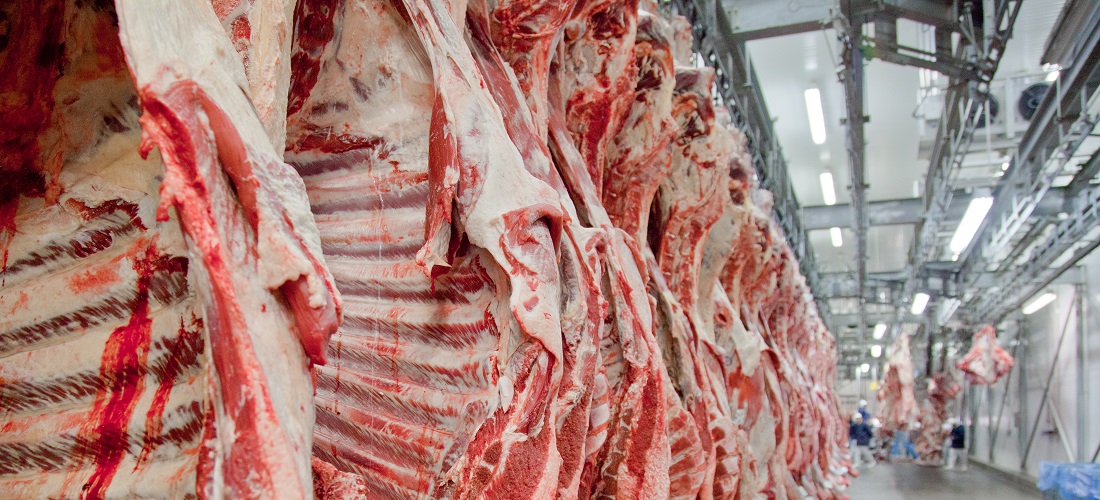
Meat-packing companies propose transferring cargo between foreign ships to avoid crisis
Dec, 17, 2021 Posted by Gabriel MalheirosWeek 202148
Having nearly 20% out of its exports held in warehouses, storage facilities, and ports due to delays in shipping schedules, meat-packing companies proposed to the government a change in legislation to allow the transfer of cargo between foreign ships off the Brazilian coast. According to José Perboyre, logistics coordinator of the Brazilian Association of Animal Protein (ABPA), the measure would mitigate the effects of the international logistics crisis currently affecting the sector.
“Our request is to make it possible for smaller foreign ships to transfer products in Brazilian ports, which the law currently does not allow, for as long as ports remain out of capacity to welcome those aforementioned ships”, stated Perboyre as he praised the approval of the BR do Mar project – a decree that encourages cabotage navigation in Brazil. Approved by the Chamber of Deputies last Wednesday (12/15), the project sets the basis for facilitating the chartering of foreign vessels.
“BR do Mar’s approval is a good sign and there is a willingness to cooperate coming from the government. There are still pilotage issues to be discussed, but we have managed to be included in the conversation and we will work to have our demands listened to”, complemented the ABPA’s logistics coordinator.
According to him, the insufficient number of containers and available ships will likely repeat next year, generating the need for investing in port infrastructure to prepare them to receive the new vessels that will be put in circulation starting from 2023. “These large ships will have the capacity to carry 35% to 40% more cargo meant for exportation, the biggest complaint being that they are unable to dock.” Perboyre also highlighted that “the trend is not only to allow cargo increase but also bolster the use of cleaner fuels”. “What happens today? There is a lack of space in vessels. We were here in April and there were not enough containers. After the freight was regularized, more containers became available but now we have no ships”, said the businessman.
Ricardo Falcão, president of CONAPRA, the organization that oversees piloting in Brazil, opines that the solution proposed by the industry is impossible. “The idea is good but we must consider the reality of port infrastructure first. Large vessels are not equipped to move containers. They need a kind of structure that only ports have, which is called portainer”, explains Falcão, recalling that this operation is common among oil tankers.
“A portainer can make up to 50 operations in an hour. A large-sized vessel arrives and eight portainers can handle 500 containers per hour. We cannot reach the same results with a crane; to do that, a portainer-like structure would be needed and those ships were not built with it, says Falcão.
Source: Globo Rural
To read the full original article, visit the link:
-
Apr, 26, 2024
0
Blueberries – Global Demand on the Rise
-
Dec, 19, 2024
0
Ring Road Promises to Transform Access to Port of Santos and Relieve Traffic in Guarulhos
-
Nov, 27, 2020
0
Brazilian fruit exports to Arab countries expected to grow in 2021
-
Shipping
Feb, 28, 2025
0
Argentine Agribusiness Calls for Urgent Bidding Process for Key Waterway

